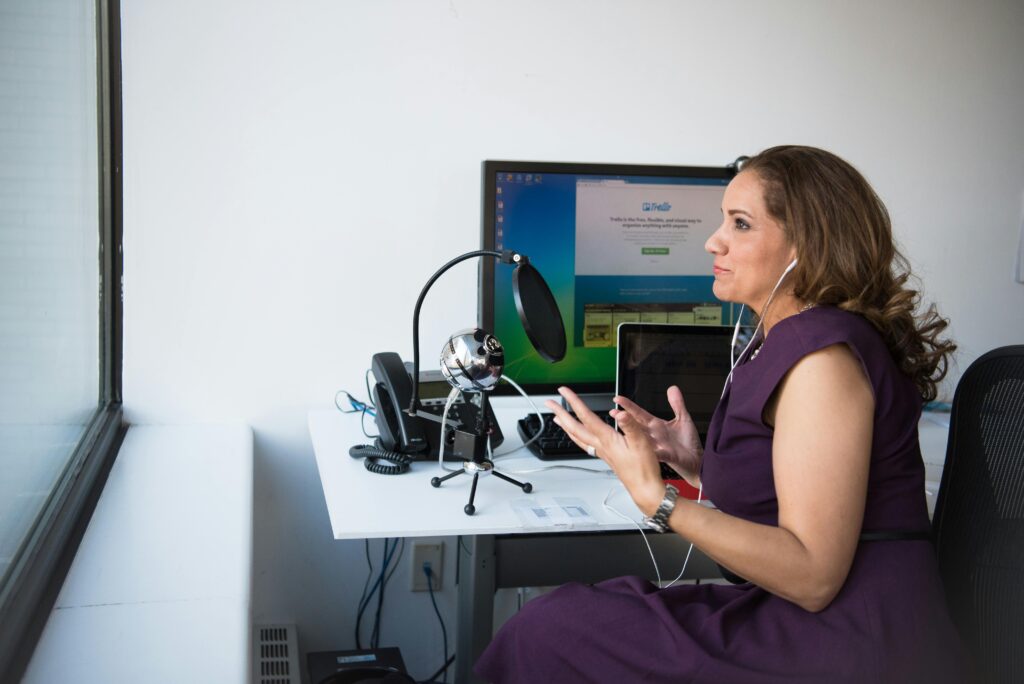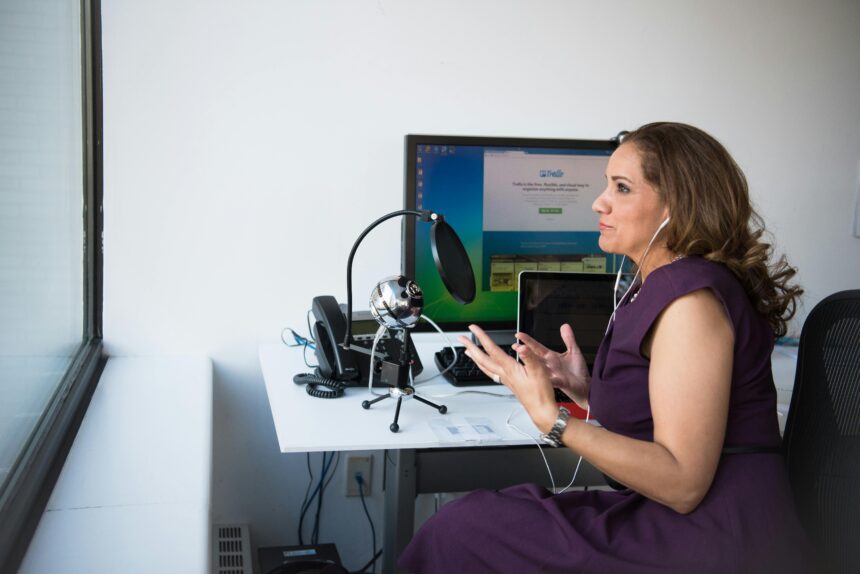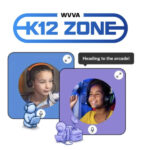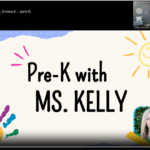
Teacher quality is important in any school. Particularly in online school.
When it comes to online education, one of the most important factors that can affect your child’s success is the quality of the teacher. With the rise of virtual classrooms, parents are increasingly looking for ways to assess whether an online educator meets their standards for quality. After all, the teacher plays a pivotal role in ensuring that your child receives the same—or even higher—quality education as he would in a traditional setting.
If you’re considering online schooling for your child, here’s a guide on what to look for in online teachers to ensure a positive learning experience.
Understanding Teacher Quality Standards
To evaluate the quality of online teachers, it’s essential first to understand what quality online teaching standards are. These standards are designed to ensure that educators possess the skills, knowledge and strategies to create an effective learning environment in a virtual space.
Good online teachers not only have subject expertise but demonstrate strong digital literacy, communication skills and the ability to engage students virtually. Quality online teaching standards include criteria such as clear communication, active student engagement and the use of diverse instructional strategies tailored to different learning styles. For parents, knowing these standards helps you assess whether a teacher can provide the kind of education that meets your child’s needs.
Engagement and Interaction
One of the key differences between traditional and online schooling is how teachers interact with students. In an online environment, engagement can be more challenging, but it’s just as crucial for student success.
Look for teachers who actively engage with students through interactive lessons, virtual discussions and personalized feedback. Online learning tools such as video calls, forums and real-time quizzes should be used to foster interaction and participation. A high-quality teacher will make the effort to create an inclusive and engaging virtual classroom, ensuring that all students feel involved and supported.
Teacher Expertise and Qualifications
While online learning offers flexibility, it’s important that the educators have the appropriate qualifications to teach effectively in this environment. A teacher’s credentials not only should align with the subject matter but should include experience in teaching virtually.
Ensure that the teacher has relevant experience in K-12 education, particularly with online platforms. Look for teachers who are familiar with online teaching tools and technologies such as learning management systems (LMS), video conferencing software and interactive whiteboards. These tools enhance the learning experience and make online education more effective.
Personalization and Student-Centered Approach
Online education provides a unique opportunity for personalized learning. One of the main advantages of this model is the ability to tailor the curriculum to each each student’s individual needs, learning pace and style. High-quality online teachers understand this and make the effort to customize lessons to match each student’s learning preferences.
Look for teachers who take time to understand your child’s strengths, weaknesses and interests. They should provide opportunities for one-on-one support, whether through private virtual office hours or personalized feedback on assignments. This helps students not only grasp concepts more effectively but stay motivated and confident in their learning.
Assessing Teacher Quality in Online Classrooms
Just as you would evaluate a teacher in a traditional classroom, it’s important to assess teacher performance in an online setting. Here are some key factors to consider when evaluating a virtual teacher’s performance.
- Timeliness and responsiveness: A good online teacher should respond to emails, messages and assignment submissions in a timely manner. This creates a sense of reliability and trust between the teacher and students.
- Clear feedback: High-quality teachers provide detailed feedback on assignments and tests. Feedback should be constructive, specific and designed to help students improve.
- Use of data: The best online teachers regularly assess student progress through quizzes, tests and assignments. They use this data to adapt lessons and provide targeted interventions when needed.
Tools for Parents to Assess Teacher Quality
As a parent, you can use several tools to assess teacher quality in an online school environment.
- Review online school resources: Many online schools provide performance reports, progress trackers and feedback from teachers, which can help you gauge the effectiveness of a teacher.
- Ask for regular updates: Request periodic updates on your child’s progress, and don’t hesitate to schedule meetings with teachers to discuss concerns or improvements.
- Talk to other parents: Connect with other parents to hear their experiences and evaluate teacher performance from multiple perspectives. Word of mouth can give you valuable insights.
Ensuring Your Child’s Success in Online Schooling
In today’s digital age, quality online teaching standards are vital for a successful learning experience. By focusing on key aspects such as engagement, expertise, personalization and consistent assessment, you can ensure that your child receives a quality online education.
As a parent, staying informed about what to look for in online teachers is crucial. You can help your child thrive in the virtual classroom by evaluating teacher quality and advocating for the best possible learning environment.
If you’d like more information on choosing the right online school or how to assess teacher effectiveness further, explore these additional resources online to help guide your decision-making process.
Resouces:
- National Education Association (NEA) – Online Learning: A resource providing general insights into the standards and best practices for online education.
- Edutopia – How to Choose an Online School: A guide for parents looking to understand what to look for when choosing an online school for their child.
- Quality Matters – Rubric for Online Courses: A research-based quality assurance program for online education, detailing how to evaluate the quality of online teaching.
- The International Association for K-12 Online Learning (iNACOL): Offers a comprehensive framework for assessing online schools and courses, with guidelines on teacher quality.
- Online Learning Consortium (OLC): Provides resources on the effectiveness of online education and the tools necessary for parents to assess online learning quality.
- The U.S. Department of Education – Virtual Schools and Online Education: A government resource with research on the quality of online education and best practices for virtual classrooms.















